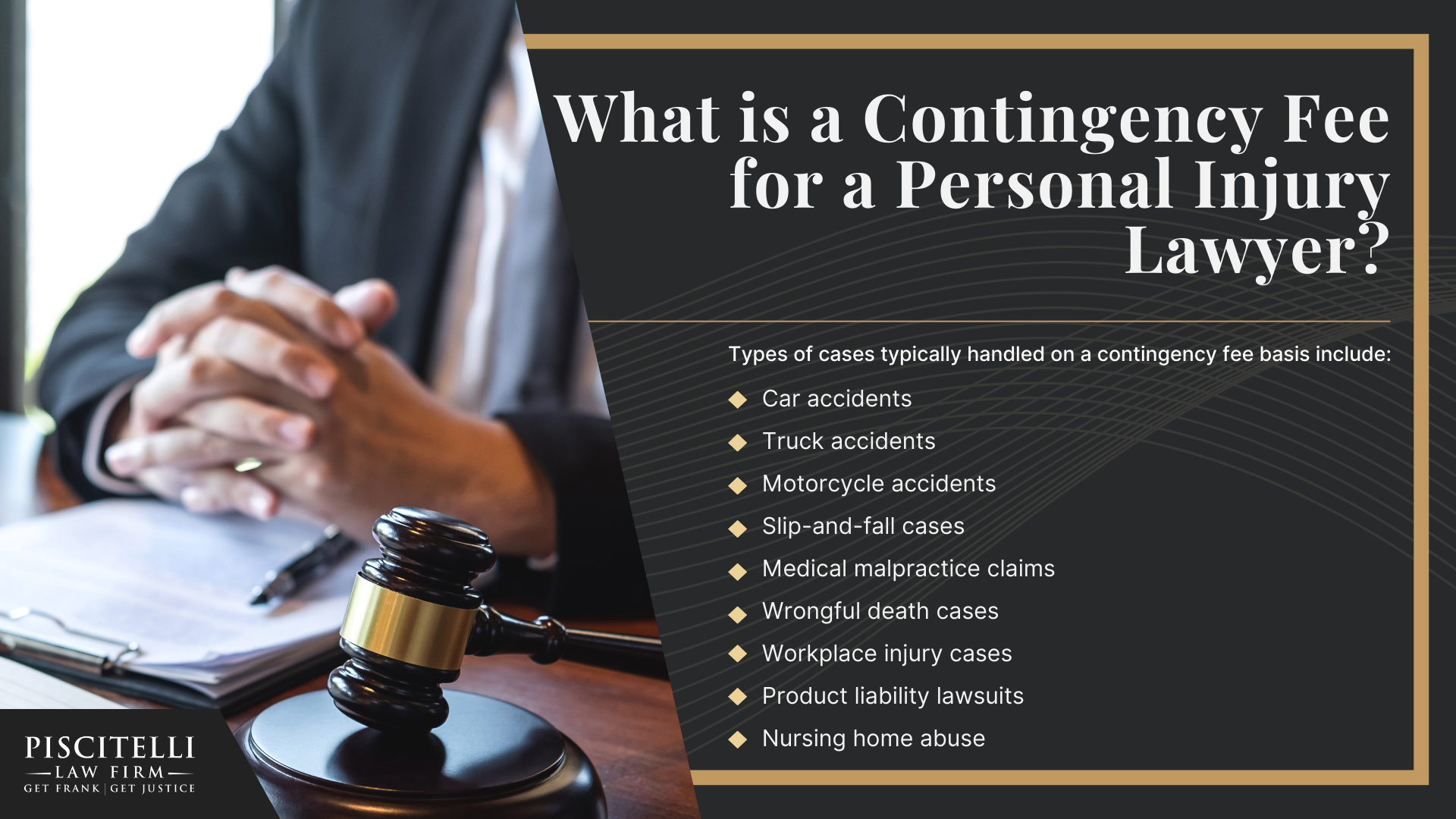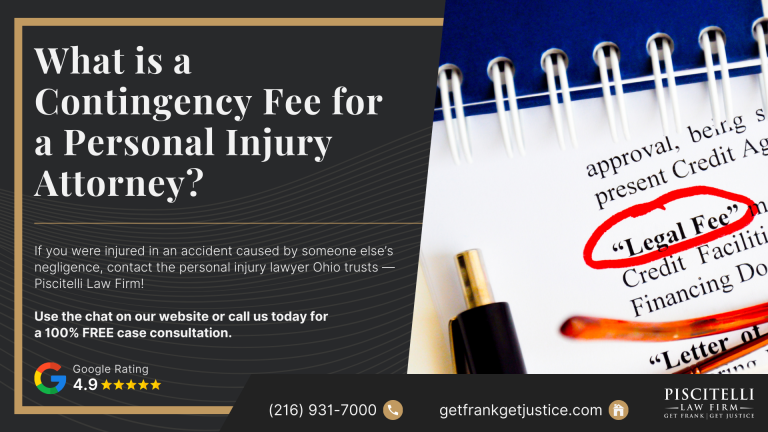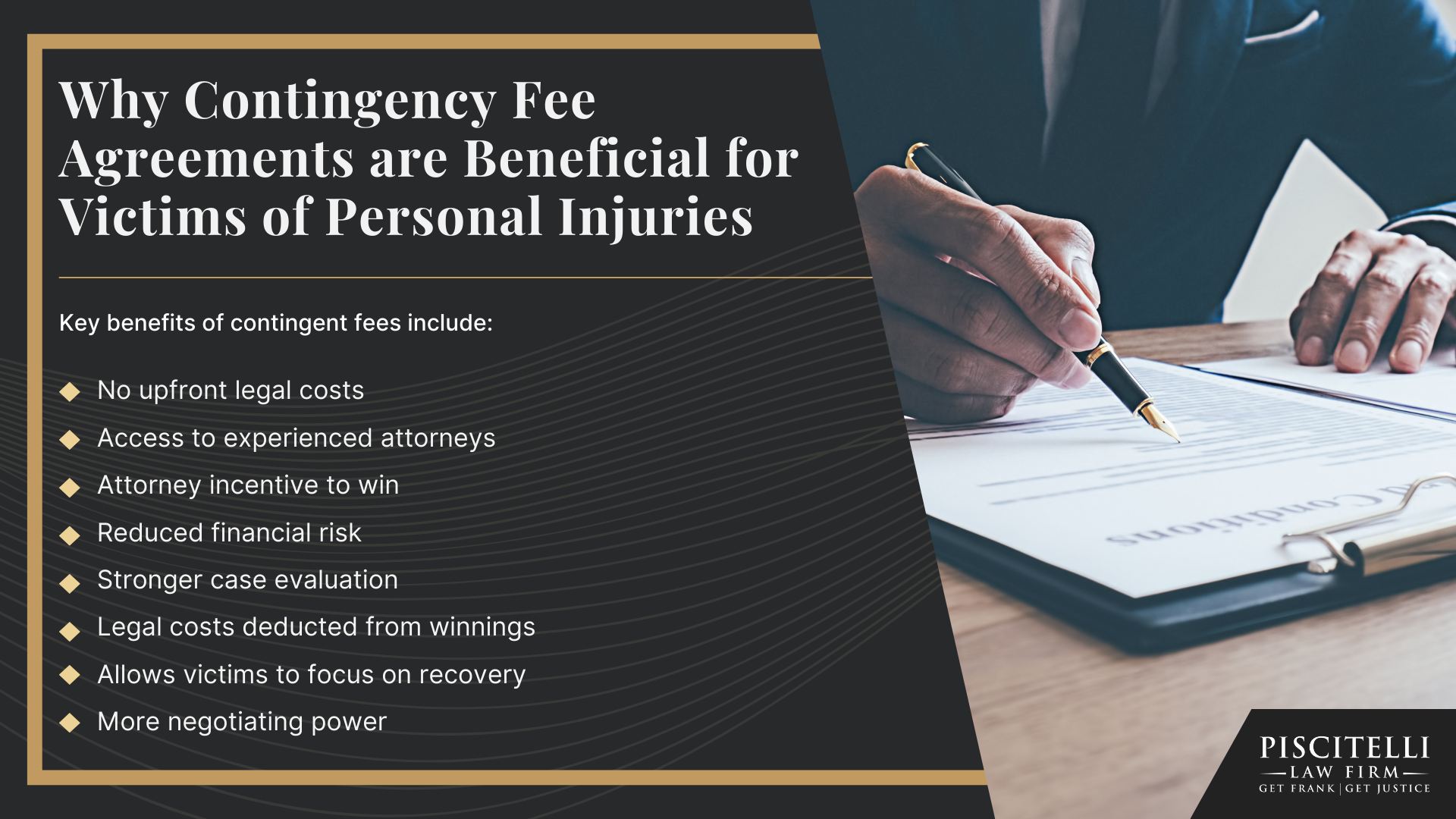A contingency fee is a payment arrangement where a personal injury lawyer only collects an attorney’s fee if they achieve a successful outcome for the client.
Unlike traditional retainer agreements or billing on an hourly basis, this structure allows injury victims to pursue legal action without paying anything upfront.
The attorney’s fee is instead deducted as a percentage of the compensation awarded through a settlement or court verdict.
This model makes legal representation accessible to those who may not have the financial means to cover court costs, expert witness fees, and filing expenses in advance.
Because payment is tied to the successful outcome of the case, attorneys working on a contingent basis are motivated to secure the highest possible recovery for their clients.
Contingency fees are standard in personal injury cases, where victims suffer financial losses due to someone else’s negligence.
The percentage charged varies by case type but typically ranges between 30% and 40% of the final award.
If the case is unsuccessful, the client does not owe the attorney for their time, but they may still be responsible for some out-of-pocket expenses, depending on the terms of the retainer agreement.
This arrangement shifts the financial risk away from injury victims, allowing them to focus on medical recovery and rebuilding their lives instead of worrying about legal fees.
Personal injury attorneys commonly work on a contingency fee in cases involving significant damages and complex liability disputes.

Types of cases typically handled on a contingency fee basis include:
- Car accidents
- Truck accidents
- Motorcycle accidents
- Slip-and-fall cases
- Medical malpractice claims
- Wrongful death cases
- Workplace injury cases
- Product liability lawsuits
- Nursing home abuse
- & more
How is the Lawyer’s Percentage in a Contingency Fee Determined?
The percentage a lawyer takes in a contingency fee arrangement depends on the particular case, its complexity, and whether it settles or goes to trial.
Many attorneys use a sliding scale, where the percentage increases if the case requires extensive litigation or a court trial.
For example, a lawyer may take 33% of a settlement but 40% if the case goes to trial, as trials often involve more time, resources, and legal work.
The final percentage is outlined in a contract between the person filing the claim and the attorney before the case begins.
If the lawyer successfully helps the client obtain compensation, their fee is deducted from the total money awarded.
In many cases, attorneys also negotiate with insurance companies to maximize the settlement while keeping the contingency fee fair for the client.






